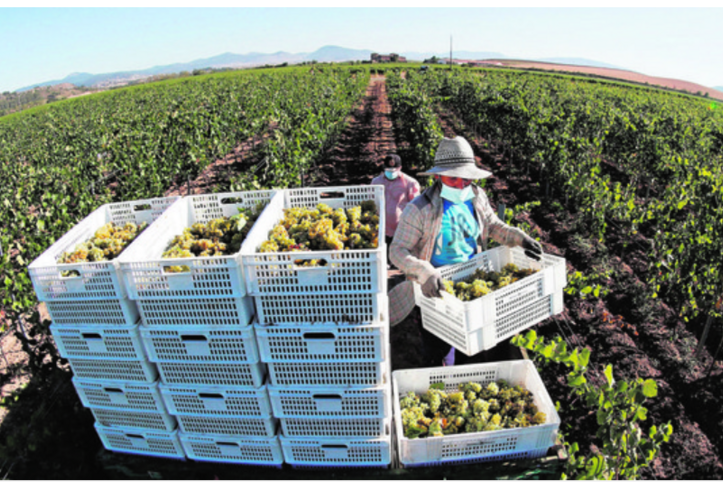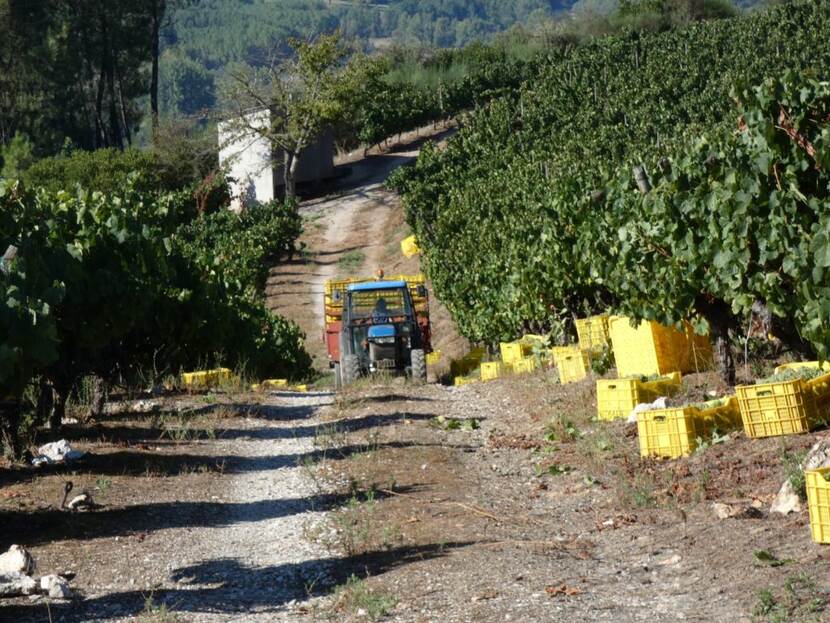Spain: Grape harvest under coronavirus threat
Public administrations and wine growers are joining forces in what is being the most atypical harvest in recent years. Additional safety protocols have been established to protect seasonal and itinerant workers.

The coronavirus pandemic, which is seriously damaging the Spanish economy, has joined the perfect storm that has been battering the Spanish wine sector: 25% tariffs imposed by the US due to European public aid to Airbus, Brexit and problems in markets such as Russia and China.
One of the most exported food products from Spain
The latest new outbreaks in Spain add further concern for a product, which, together with must, was one of the five most exported agro food products in 2019. Last year, Spanish agro food exports reached more than 53 billion euros. Wine and must exports were worth 2,958 million euros, only surpassed by pork (3,414 million), citrus (3,093 million) and oil (3,027 million).
Taking into account the period from July 2019 to July 2020 of this year, sales abroad reached almost 2,600 million, according to the Spanish Wine Market Observatory (OeMV). This same source points out that the first half of 2020 ended with nearly 91 million euros less in exports.
Shielding vineyards from the coronavirus
In this context, vineyards are shielded from the coronavirus, with measures such as bubble groups, temperature taking or social distancing. Between now and October, 952,829 hectares will have to be harvested in Spain, located mainly in Castilla-La Mancha, Extremadura and Castilla-León. "You are risking your business in a couple of months. Any incident can lead to the destruction of a winery and that is a drama", the director of the Denomination of Origin Rueda summarized. Up to June, sales of Rueda wines have fallen by 8%.

The president of the Association of Agro food Cooperatives, Ángel Villafranca, speaks of "concern" and estimates that between 43 and 44 million hectoliters will be harvested this year, compared to 37.5 million from the last season. Mr. Villafranca acknowledges the sector's concern about the movement of temporary workers and the commercial drain due to the crisis in the Horeca channel, and the "closure" of many markets, with an estimated overall drop in sales of 35-40%.
Safety protocols
Aware of the high stakes, the regional authorities and the Ministries of Health and Agriculture have designed anti-COVID protocols, especially in relation to the transport and accommodation of seasonal workers. It is estimated that in Spain 13% of COVID-19 outbreaks are caused in the workplace.
In particular, regions such as La Rioja, Castilla-La Mancha or Castilla-León have drawn up their own regulations. For example, the government of La Rioja is carrying out PCR tests to all seasonal workers and the government of Castilla-León has offered to pay for this type of test for itinerant seasonal workers.
Castilla-La Mancha has published its own regulation, the main novelty of which is the obligation for wine producers (85,000 in this region) to list the contact details of their workers and the people with whom they live.
For the National Government's guidelines to minimize the risk of transmission of COVID-19 between seasonal workers, click here https://bit.ly/3hOu4ey
Source: ABC